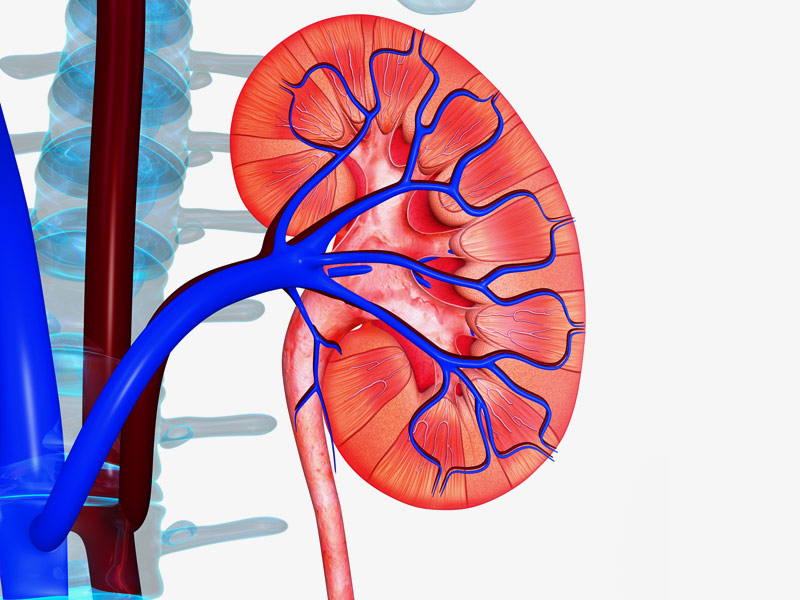
New Trial Tests Ozempic For Kidney Disease in Type 1 Diabetes

If you have type 1 diabetes and kidney disease, you may be eligible for a trial investigating how Ozempic affects kidney function and glucose control.
- Clinical Trials Identifier: NCT05822609
- Trial Name: Trial of Semaglutide for Diabetic Kidney Disease in Type 1 Diabetes (RT1D)
- Diabetes Type: Type 1 diabetes
- Trial Sponsor: University of Washington
What is the aim of the study?
This study is researching how Ozempic (semaglutide) affects kidney function in people who have type 1 diabetes and chronic kidney disease.
Ozempic is a GLP-1 receptor agonist that has been approved for type 2 diabetes and weight management under the brand name Wegovy. It is not currently approved for type 1 diabetes.
Besides kidney function, the trial will also test whether Ozempic is safe and effective at managing blood glucose in type 1 diabetes. Several small studies, such as the STEMT Trial, have shown promising results for Ozempic in type 1 diabetes. Based on these findings, researchers predict that Ozempic will reduce total daily insulin doses and better balance glucose levels.
How does the trial work?
Researchers are recruiting 60 adults with type 1 diabetes and kidney disease for this trial. Participants will either receive Ozempic (semaglutide 1 mg) or a placebo injection; all participants will wear a CGM.
At the end of the 26-week trial, participants will undergo an MRI scan to measure how much oxygen is delivered to the kidneys and used by kidney cells. Kidney oxygenation is an important indicator of kidney function since both too little and too much oxygen can damage kidney cells.
Researchers will also measure urinary albumin to creatinine ratio (UACR) and estimated glomerular filtration rate (eGFR). UACR measures the amount of protein in the urine; the presence of urine protein can indicate kidney disease. They will also measure eGFR, which is a test of kidney function. Note that the American Diabetes Association recommends annual UACR and eGFR screenings for people who have type 1 diabetes.
The study will also track participants’ time in range, glucose variation, and total daily insulin dose.
Why is this study of Ozempic important?
Kidney disease is a serious complication of diabetes that affects approximately 30% of people with type 1, according to the National Kidney Foundation. While keeping blood sugar levels in target range has been shown to reduce the risk of developing chronic kidney disease, there are still no medications approved to prevent or treat kidney disease in type 1 diabetes.
Ozempic has already shown impressive results in type 2 diabetes and kidney disease. Recently, the FLOW trial found that Ozempic slowed the progression of kidney disease by 24% and reduced the risk of death from kidney disease and major cardiac events.
If Ozempic is successful at improving kidney function in this study, there will likely be larger trials that could eventually lead to FDA approval for Ozempic in type 1 diabetes.
This study will also help advance research on adjunctive therapies for type 1 diabetes – non-insulin medications that can be used to help manage complications of diabetes. Studies are underway to investigate GLP-1s and SGLT-2s as well as the kidney drug Kerendia (finerenone) as adjunctive therapies. Currently, Smylin (pramlintide) is the only approved adjunctive therapy, but it is not widely used by people with type 1.
Are you interested in participating?
You may be eligible if you:
- Are at least 18 years old and have been diagnosed with type 1 diabetes for at least five years
- Have an A1C under 9%
- Have a UACR of at least 30 mg/g and an eGFR of at least 45 mL/min/1.73m2
- Are on stable doses of blood pressure and cholesterol-lowering medications
People who have had recent diabetic ketoacidosis or a history of pancreatitis are not eligible for this study. See a full list of inclusion and exclusion criteria here.
This study is recruiting in Colorado and Washington, as well as Toronto, Canada. To enroll or learn more about this study, contact jporter7@uw.edu or call 206-897-4728.









